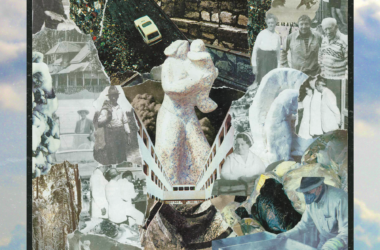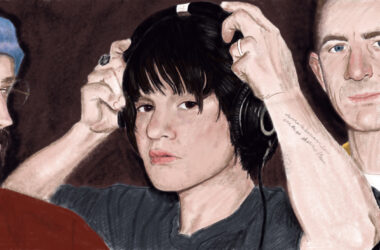Eccentric, electric, and extraordinary, Florence Welch and her devoted Machine defied conventions with their June 29 release of High as Hope. The band’s fourth album reveals a seasoned, contemplative Welch who explains her past traumas in music for the first time.
Florence + The Machine’s first three albums, Lungs, Ceremonials, and How Big, How Blue, How Beautiful are grandiose and full, whereas the band’s recent release is more subdued and mature. High as Hope also details Welch’s struggles with alcoholism and an eating disorder, among other illnesses and self-destructive behaviours. The tracks trace the process of overcoming such hurdles in a way that the band’s music never has, transcending the simple statement of her issues. Welch tells these stories slowly and deliberately—for they are ones of vulnerability and remorse.
The band’s first High as Hope release, “Sky Full of Song,” is mundane, repetitive, and saw little to no Machine, setting the scene for what would be a calmer and slower record. The song is meant to convey the feeling of wanting someone to bring you back to Earth when you’ve engrossed yourself in doing what you love. The recording includes limited accompaniment, with faint drums and guitar to support Welch’s voice. This creative choice fails to excite, and the song is particularly underwhelming, contrasting with the rest of Florence + The Machine’s music entirely.
Reminiscent of the “old Florence,” the powerful love song “Big God,” tells the story of Welch trying to find self-worth when ignored by her lover..’ An ominous piano boldly announces the beginning of the song, and Welch’s vocals communicate frustration and despair at the void left in her soul when she was ghosted. The lyrics, “Sometimes I think it’s gettin’ better / And then it gets much worse / Is it just part of the process? / Well, Jesus Christ, it hurts” convey her frustration at the trials of modern dating. The accompanying music video for “Big God” also sheds light on the might of female empowerment: Featuring cloaked, witch-like women who support Welch through each emotional blow she experiences.
Prior to High as Hope, Florence and the members of The Machine recorded and performed in a balanced marriage of lyric and instrument. However, the new album is more about Florence and less about The Machine, as it clearly emphasizes Welch’s vocals. Nevertheless, this aspect of the album works in tandem with its purpose: A reflective and introspective look at Welch’s past and present. Without the bold instrumentals that set Florence + The Machine’s work apart from other artists, listeners can fully absorb the meaning behind her enchantingly-honest lyrics. High as Hope is most definitely worth a listen, even if to witness the profound growth of the band and get a taste of what might come next.
★★★★







